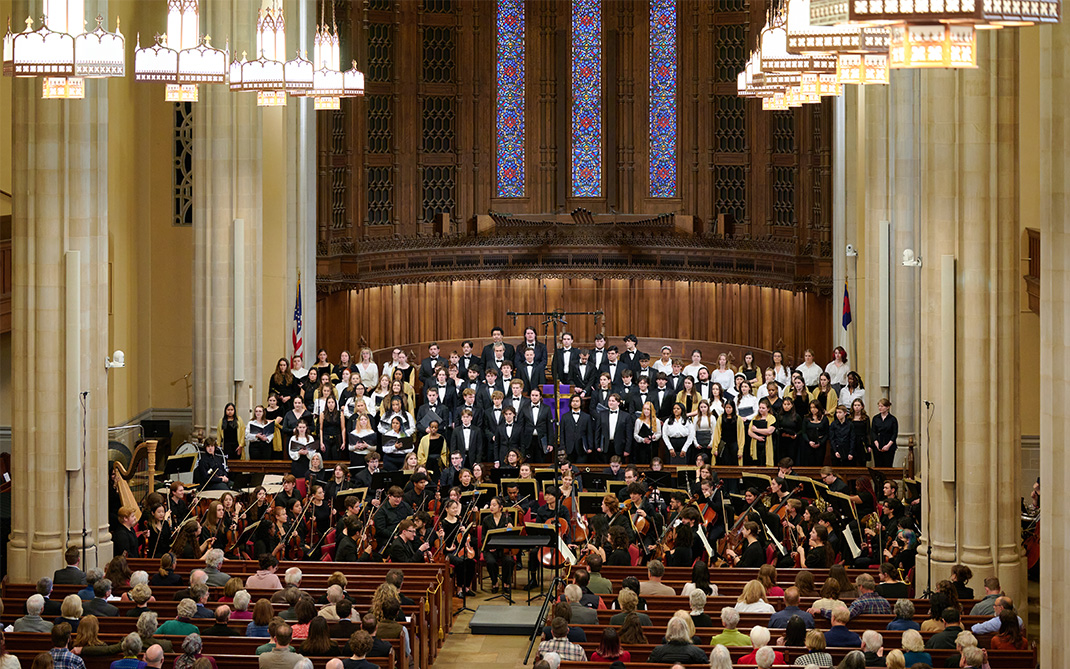ArtistCorps Alumni Stories: Ana Locke
Ana Locke served in ArtistCorps from 2015 to 2018 while completing her masters in clarinet performance, using her skills as a music educator to serve youth in Winston-Salem. She is currently pursuing her doctorate at the University of Iowa. We recently caught up with her via phone.
What made you decide to serve in ArtistCorps?
Having obtained my undergrad music ed degree, I was looking for something as similar to music education as possible that I could. I went on the UNCSA website and saw ArtistCorps and so I talked to Dr. Espina-Ruiz and he said I should get in touch with Rebecca Nussbaum.
Share a moment from your service that stands out to you.
There was one student—he was hilarious. He was the funniest young gentleman I’ve ever met—and he could not for the life of him focus on music because he had so much fun being funny. It got him in a lot of trouble in his other classes. He would make jokes and I listened to them. Even though it was really small, he felt like he could be himself, he didn’t have to be a robot or something he was not in class.
How did that shape your perception of service or the communities you served?
It reinforced how I felt that too many people get bundled into a “type” of person. We worked in what some people may call “underserved communities.” And that title carries a lot of weight—when you give something a title it means something. I would put the people I was serving into a category on accident, and each one of those children are so different. I think we should find another way to say this because it’s categorizing all of them as “underprivileged youth.” And they aren’t “underserved youth” in my head, they’re just youth.
What was your biggest takeaway from your service?
I learned to figure out what each child needs. For example, you come in with this lesson plan and you’re going to do rhythms with this cool game but little Sophie in the corner is really upset and not talking. Well, maybe you don’t have to do that lesson plan that day. Maybe you do something else because her feelings matter and she needs to express her feelings in whatever way, whether through music, through art, through reading, or just being quiet, you shift your plans.
Has service influenced your life since leaving?
I’m way more patient and understanding. You hear a lot of the young kids’ stories, not always exactly what’s going on, but you know something’s happened. Now—even with my own kid—if she’s crying I’m like, “Okay you have your own feelings and you’re allowed to feel them and I need to let you do that.” And that means I have to take a breath and take a second and reassess what I’m doing because I want you to know that you matter as a person.
What have you been up to?
I finished the first year of my last degree (I hope), my doctorate. I got married. I went to Europe. I had a baby. And I experienced -40 degree temperatures and I made a zillion new friends. Next year, I have to do two recitals. I was pregnant and having diaphragm spasms while playing my instrument – nearly passing out so I couldn’t give my first recital. That’s pushed to next year, so not only do I have to do my regular recital, I get to do the first one as well. During my second year of my doctorate, I’ll solidify some composers for my dissertation. I’m hoping to have Cuban composers write music for me to record for my dissertation. I want to make an entire CD about Cuban culture, people, and history, for clarinet, clarinet and piano, and possibly reed quintet. I’m also starting a reed quintet at the University of Iowa.
January 22, 2020



